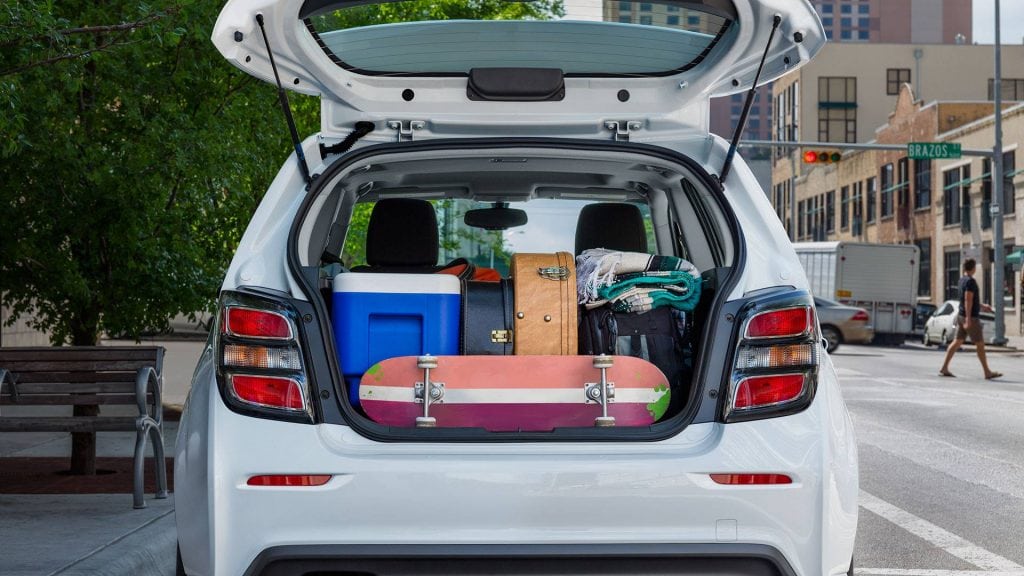Skift Take
Car rental brands are losing customers to ascendant ridesharing services. As they become more nimble and technology-focused, however, car rental companies should be able to regain some share in the ground transportation marketplace.
Car rentals have fallen out of favor with many travelers since new ground transportation options have emerged in recent years.
Competition aside, a variety of issues central to the business model of the car rental industry are making it more difficult for companies to maintain stable corporate growth.
Hertz Global Holdings took a major financial hit on Tuesday when its stock plummeted more than 50 percent after a disappointing earnings release revealed that its earnings dropped by $101 million year-over-year in the third quarter. The stock has since bounced back, but weak fundamentals aren’t getting much better for car rental companies.
“I want to acknowledge and take personal responsibility to the fact that I underestimated the depth and the breadth and the complexity of the transformation we are now undertaking at this company,” said Hertz Global Holdings CEO John Tague on the company’s third quarter earnings call. “… We’ve had macro factors that affected us and actually company-specific factors that affected us international, the terrorist events in March and subsequently in early July clearly had an impact on international inbound in Europe.
“I think in terms of the three- to five-year timeline, one of the caveats we mentioned all along, was it didn’t account for the possibility of a down cycle within one of the three years. So, I think that obviously affects our view around timing, and we don’t really know what the answer is. I think having a year like this arguably puts you further behind than where you’d like to be.”
Hertz has struggled to updated its technology backend, which has slowed the company’s pivot to a more mobile-focused strategy. While dabbling in the ridesharing space through a partnership with Lyft in select cities, Hertz has yet to figure out how to appeal to consumers who prefer an on-demand ground transportation experience.
Weaker Demand, Lower Car Values
Momentum, or lack thereof, has come to define the car rental space. Reduced demand in both the leisure and corporate spaces has led to rental car companies reducing their fleet size in order to cut overhead. Less demand, of course, means lower car rental fares for customers.
But the cars they do have, primarily small and mid-sized vehicles, are plummeting in value, meaning that selling off unused cars is having less of an impact on the bottom line than it used to.
Combined with seasonality and mounting pressure from competitors like Uber, these factors have forced car rental companies to adapt to a new competitive marketplace.
Similarities at Avis Budget
“While our rental volumes were up year-over-year, demand was weaker than we had anticipated,” said Avis Budget Group CEO Larry D. De Shon on the company’s latest earnings call. “International inbound volumes in Europe softened significantly as the summer progressed. Industry fleet levels turned out to be loose relative to demand in August and September, and pricing was negatively impacted.
“Whether this was due to security concerns, Brexit, the Olympics, the economy or some combination of these items, it’s hard to tell. Our international pricing declined 2 percent in the quarter with particular weakness in those areas most reliant on International inbound such as France, which saw pricing decline by more than six percent in the quarter and Portugal where pricing was down 11 percent.”
Avis Budget Group posted stronger results in Q3 2016 than Hertz, and has experimented with expanding its Zipcar carshare brand internationally. Now that car rental competitors have drawn down their fleets, they’re hoping to be able to charge consumers more.
“I think we’re seeing across the industry is fleets in line with the demand that’s there,” said Avis Budget Group president and chief financial officer David Wyshner. “That more than anything else I think is the driver of what we had in the third quarter, in terms of a reasonably healthy environment for pricing, despite demand that was a little bit softer than we had anticipated. And I think that is the principal driver of what we’re seeing in the marketplace and certainly positively impacted our ability to get positive pricing in the quarter.”
The Daily Newsletter
Our daily coverage of the global travel industry. Written by editors and analysts from across Skift’s brands.
Have a confidential tip for Skift? Get in touch
Tags: car rental, hertz
Photo credit: Strong competition and reduced demand for rentals is hurting the car rental space. A promotional image from Avis Car Rental's Facebook page is pictured here. Avis Car Rental / Facebook
